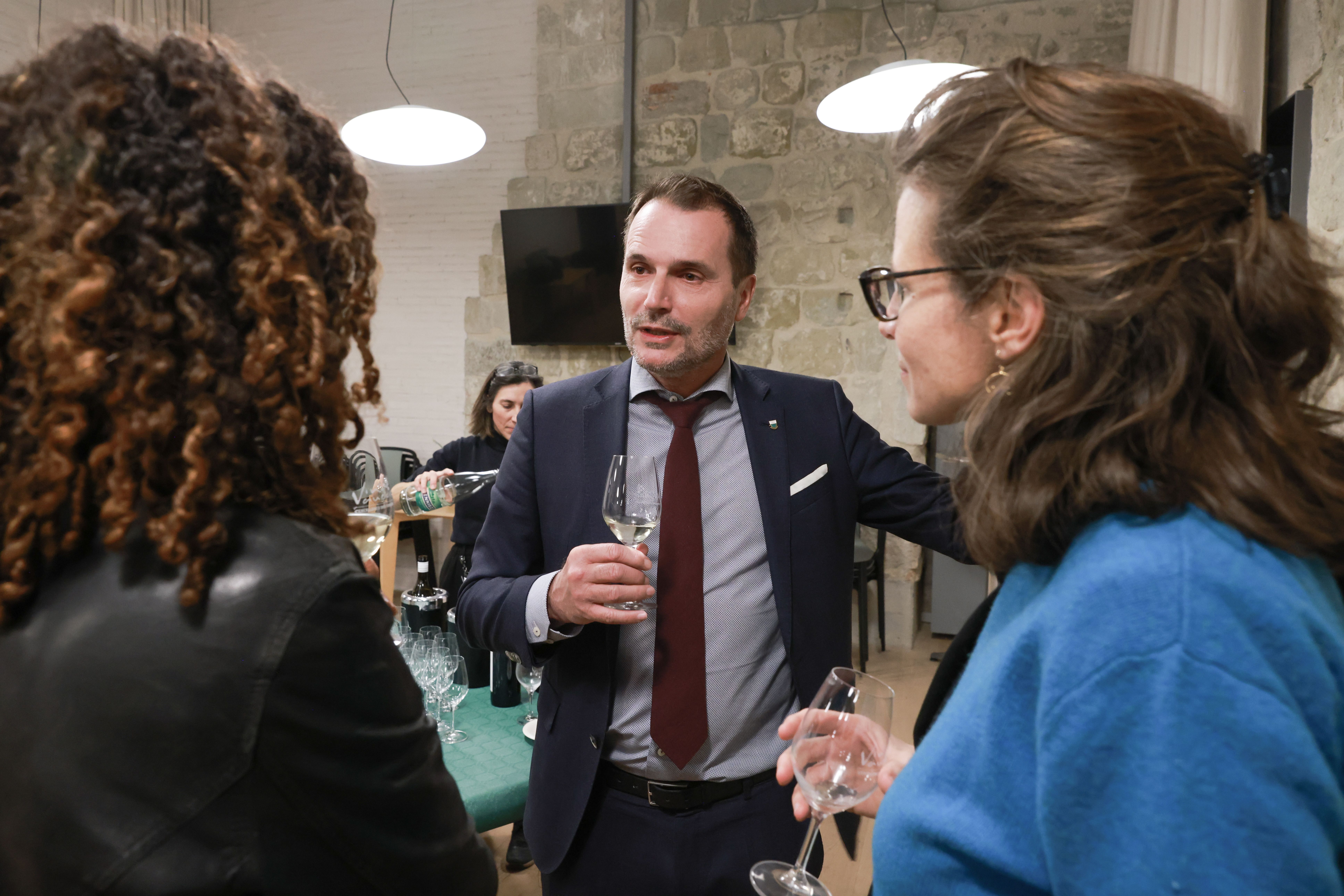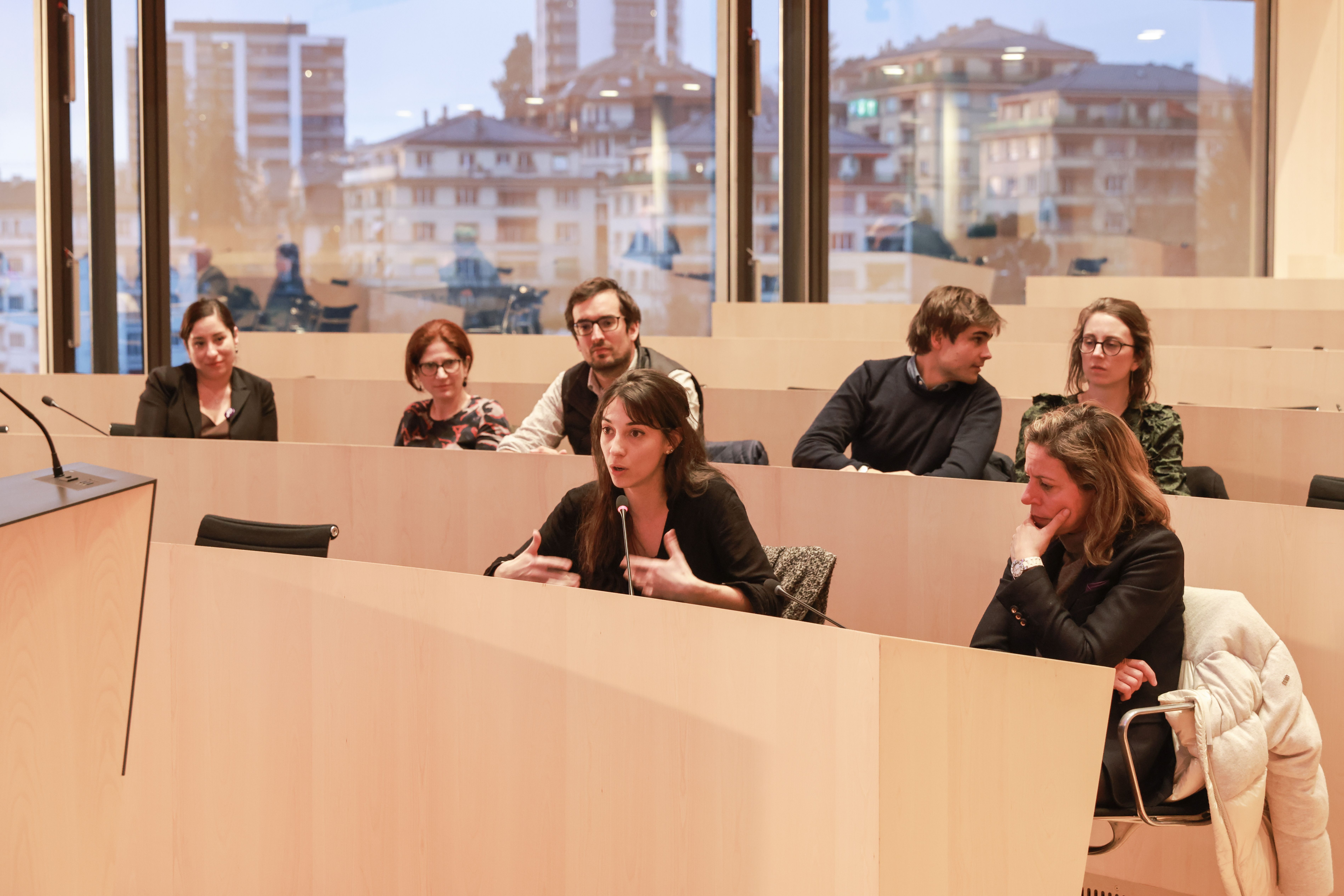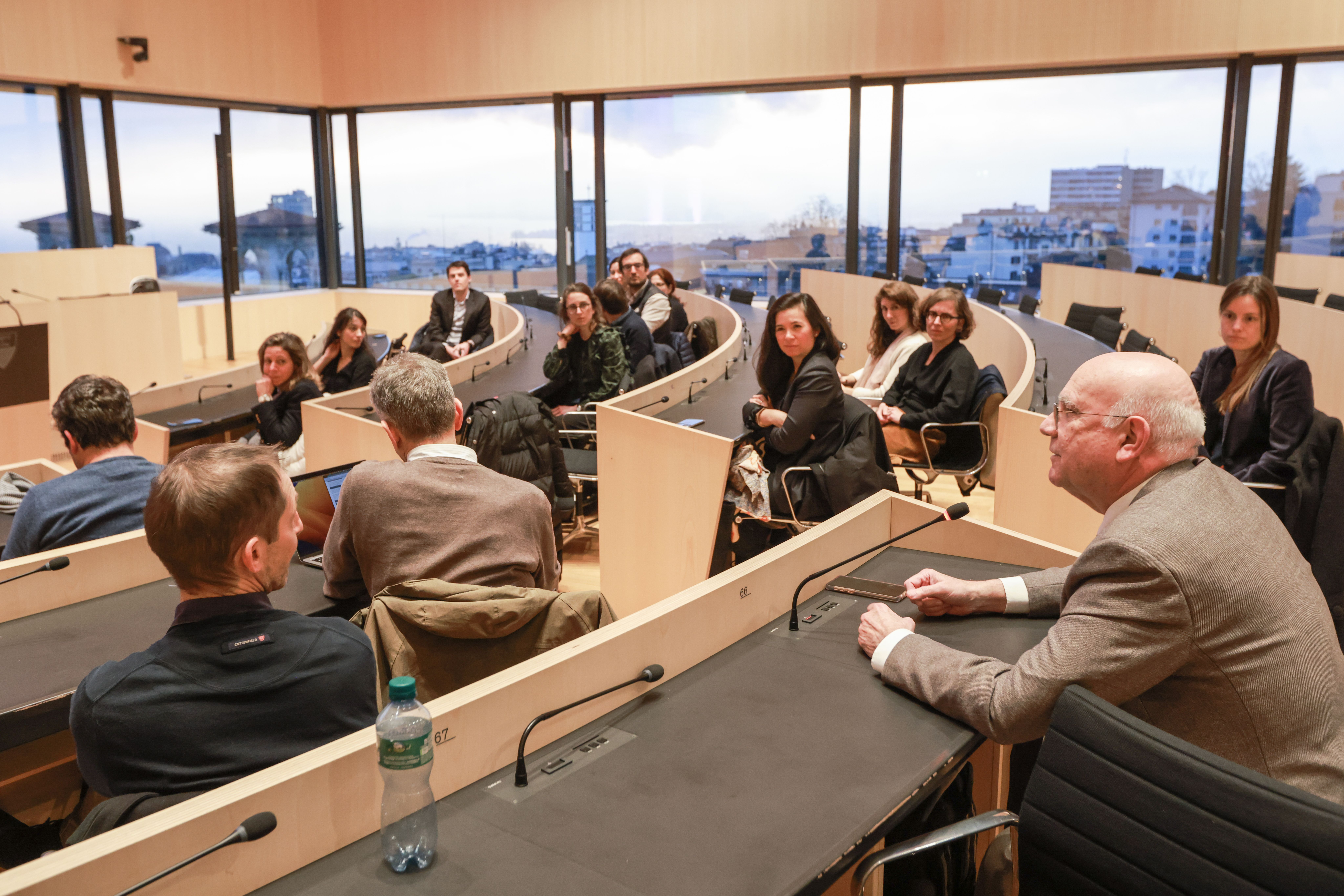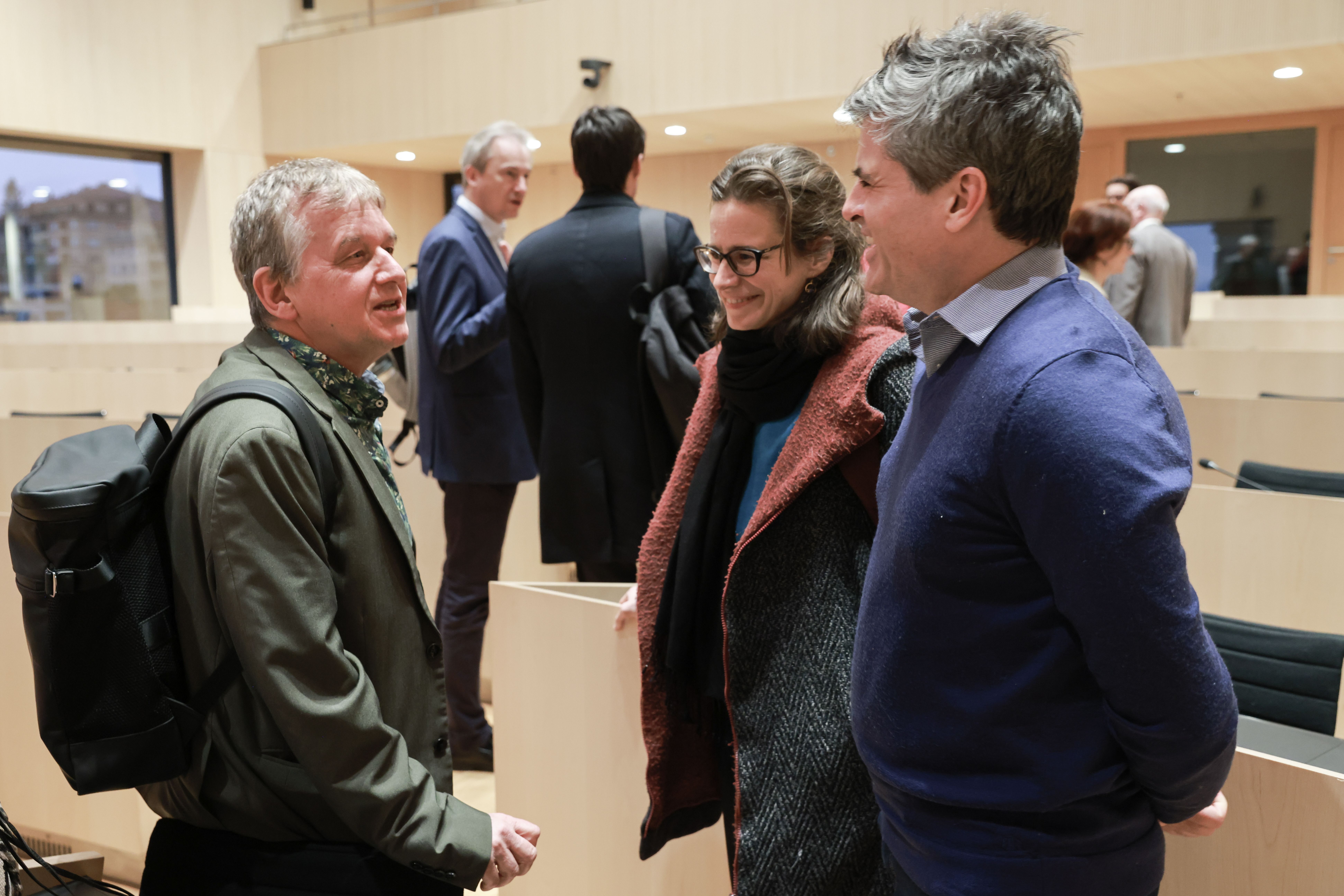"Science can inform and enlighten politics, but it does not drive it"
A meeting between the Grand Conseil vaudois and a delegation of CLIMACT scientists
Posted on Mar 14, 2023Author(s)
Aïcha Besser
Communications Manager
CLIMACT
Expert(s)
Dr Nicolas Tetreault
Executive director
CLIMACT
Following a personal invitation from Mrs Séverine Evéquoz, President of the Grand Conseil vaudois, a delegation of 25 CLIMACT scientists, affiliated to UNIL and EPFL, gathered in the old town of Lausanne to meet the deputies of the canton.
On the agenda: attending part of the parliamentary debates in the plenary room, but above all exchanging ideas on how to develop more targeted bridges between science and politics in order to accelerate the climate transition and the preservation of biodiversity.
Do politicians only position themselves according to the interests they represent? What place for scientific evidence?
The President raised the question how to push political groups to base their decisions on science rather than on political positions. She quoted Romain Felli, a researcher at the University of Geneva, who argues that politicians are not always motivated to replace parliamentary debates with objective scientific truths.
In her view, talking about objective truths can conflict with certain ideologies and political bias can influence the way scientific evidence is perceived, even if it is well documented. She concluded by quoting UNIL researcher Céline Mavrot: "The inclusion of science in the political process is taking place, through the back door, in an unspectacular manner."
A phone call, a coffee at the "buvette" and a touch of proactiveness!
In the course of this useful dialogue, the scientists were able to gain a better understanding of the different ways in which civil society can approach parliamentarians, submit proposals to them or participate as experts in thematic commissions.
However, the challenge is clear: it is crucial to know when and how to position oneself among the 331 committee sessions, the 38 plenary sessions of the parliament and the 1220 items on the agenda.
The answer is unanimous: personal contact with parliamentarians is essential, as other interest groups already do an excellent job in this area.
More than ever, it is time for the scientific community to listen even more closely to parliamentary current affairs and to keep abreast of what is being said in the corridors of power, even if it means having a drink or two at the Grand Conseil's buvette!
Concrete actions in this respect will be developed by CLIMACT in the coming months.

Nicolas Suter, PLR deputy in the Grand Conseil: "When revising a law, the State Council consults extensively with stakeholders from civil society, which provides an opportunity to give feedback that will be taken into account."

Elodie Lopes, Chair of the Petitions Commission: "The petition is an interesting tool because it allows parliamentarians to have direct access to civil society and it does not require a minimum number of signatures. Petitions are then dealt with by the Grand Conseil, which is also bound to receive the petitioners."

Gérard Maujon, PLR deputy and President of the Health Commission: "To get an opportunity to present and defend a point of view in front of a commission, you shouldn't hesitate to call the elected representatives to find out if something is in progress or if they can submit an object, but that requires preliminary contacts."

Pierre Zwahlen, Green deputy in the Grand Conseil: "In politics, it is necessary to synthesise arguments and research results in one A4 page, it is obvious that a 500 page thesis is indigestible."
More about about this event:
This meeting at the Grand Conseil took place on March 7, 2023, further to CLIMACT's first "Rencontre participative avec les politiques" on October 6, 2022. Read the article.
More about CLIMACT :
Discover our upcoming events, our CLIMACT seminar series on Youtube, our articles and follow us on Twitter @ClimactSuisse and @ClimactSwiss and Linkedin.